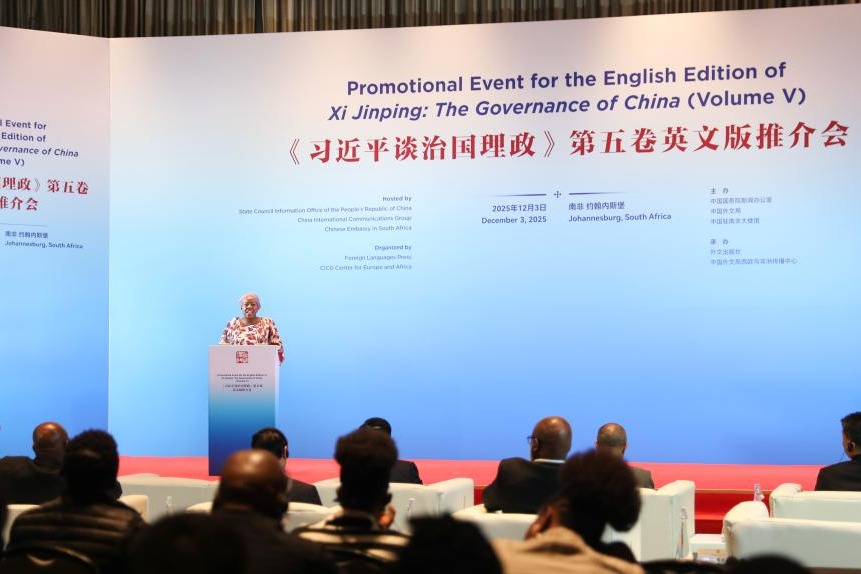Top court interpretation curbs misuse of non-compete clause
Updated regulations stress balance between trade secrets and job mobility

A few months ago, a man surnamed Shi, who is skilled in traditional Chinese medicine and worked as a livestreamer at a technology company, found himself embroiled in a lawsuit.
The plaintiff was his former employer, a company which claimed Shi had breached a noncompete agreement after resigning, and sought 1.75 million yuan ($245,285) in damages.
The Beijing Chaoyang District People's Court recently dismissed the case, ruling that the non-compete clause, or NCC, was not legally enforceable. Shi did not hold a managerial or technical position that gave him access to the company's trade secrets, the court said, adding that his livestreams on TCM did not involve confidentiality obligations.
An NCC is a legal agreement that restricts an employee from competing with their employer after leaving the job. It typically prevents the disclosure of trade secrets or proprietary information.
Such agreements are designed to protect a company's market position by barring employees from starting or joining a competing business for a defined period. They are common in sectors including technology, new energy, autonomous vehicles and pharmaceuticals.
"But many employers were found to have misused the clause, indiscriminately requiring employees to sign agreements with exorbitant penalties," said Chen Yifang, chief judge of the First Civil Division with the Supreme People's Court.
"The misuse or abuse of the NCC severely restricts workers' right to choose their employment and also hinders the flow of talent," she said.
In response, the top court updated a judicial interpretation on labor disputes and issued it in August. The revision clarifies that an NCC is not valid if an employee does not have access to or knowledge of confidential matters.
"This means workers outside the scope of non-compete restrictions are not legally bound by such a clause, even if they have signed it," Chen said. The updated interpretation took effect on Sept 1.
Chen said the clarification stemmed from a sharp increase in NCC-related labor disputes in recent years.
Data released by the Beijing No 1 Intermediate People's Court in July showed that from 2020 to June 2025, it concluded 432 lawsuits involving NCCs, accounting for 3.72 percent of all labor-related cases. That marked an increase of 104.73 percent compared with the period from 2014 to 2019.
In 2024, a case filed by a restaurant against its former cold dish chef, surnamed Liu, drew widespread public attention.
Liu signed an NCC with the restaurant that barred him from working in the catering business for two years after leaving. If he violated the agreement, he would face penalties ranging from 5,000 to 10,000 yuan.
In May 2022, Liu left the restaurant and later worked as a chef preparing cold and side dishes at two hotels.
In April 2023, the restaurant sued Liu in Nanjing, Jiangsu province, demanding 100,000 yuan in compensation.
The restaurant argued that Liu violated the agreement, saying he specialized in seafood dishes — a niche area in the culinary industry — and had gained specific skills through training and long-term work.
But Liu countered that he had only prepared basic cold dishes such as cucumbers and salads at the restaurant and never worked on seafood.
The Nanjing court ruled in favor of Liu, saying that although he signed an NCC, he was a regular cold dish chef without access to trade secrets. The restaurant also failed to prove he had learned confidential cooking techniques during his employment.
The court declared the NCC invalid and said the restaurant's actions harmed Liu's labor rights.
In a 2023 paper, Yu Shuhong, a law professor at Wuhan University, analyzed 454 court rulings involving NCCs and found that more than 70 percent of the employees held lower-level positions, including salespersons, teachers at training institutions, security guards, cleaners and receptionists, according to Legal Daily.
Shen Jianfeng, a professor at the Central University of Finance and Economics, told the paper that an NCC should serve as a "firewall" for trade secrets, not a "stumbling block" for talent mobility.
"The core of the NCC is to prevent the leakage of business secrets, not to hinder job-hopping," Shen said, adding that the updated judicial interpretation was a timely correction and warning against misuse in practice.
Chen, the top court judge, urged courts nationwide to strengthen efforts to resolve NCC disputes by balancing workers' employment freedom with fair market competition.
"The free movement of workers optimizes the allocation of social resources, and it also promotes technological innovation and facilitates industrial upgrading," she said.






























